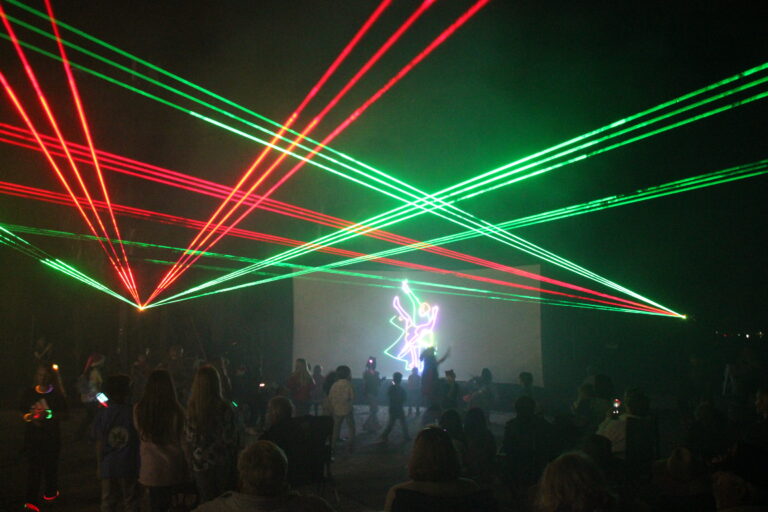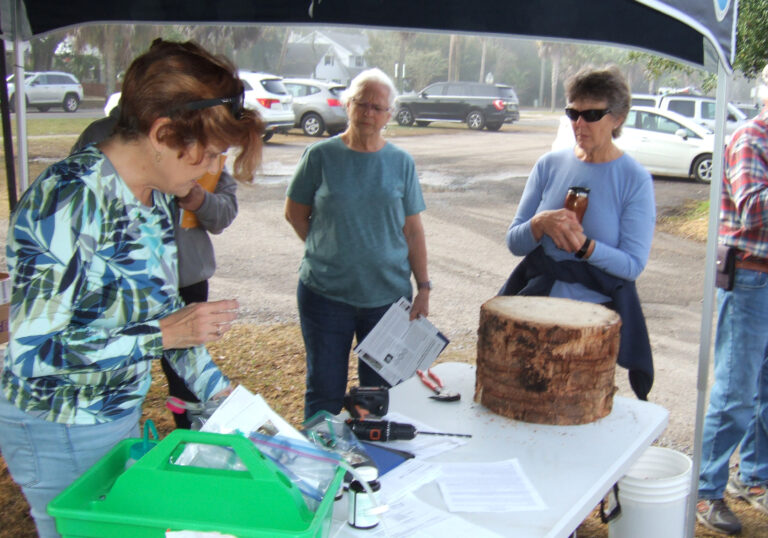Legacy Post Disclaimer
This is a #Legacy post imported from The Apalachicola Time’s previous platform. If you’re experiencing issues with this article, please email us at news@nevespublishing.com.
Bay scallop restoration program needs volunteers
Do you live in Gulf or Franklin County? You can help by being a Scallop Sitter, a volunteer program run jointly by UF/IFAS Extension and the Florida Fish and Wildlife Conservation Commission.
Historically, large populations of bay scallops were able to support fisheries across many North Florida bays, including St. Andrew Bay, St. Joe Bay, and Alligator Harbor. Years of poor environmental conditions, habitat loss, and general “bad luck” resulted in poor annual production and caused the scallop fishery to close.
Bay scallops, a short-lived species growing from babies to spawning adults and dying in about a year, can recover quickly when growing conditions are good and decline dramatically when growing conditions are bad.
An opportunity to jump start restoration of North Florida’s bay scallops came in 2011. Using funding from the Deepwater Horizon oil spill, a multi-county scallop restoration program was proposed and eventually set up in 2016. FWC scientists use hatchery-reared scallops obtained from parents or broodstock from local bays to grow them in mass to increase the number of spawning adults near critical seagrass habitat.
FWC also created another program in 2018 where volunteers can help with restoration called “Scallop Sitters.” In 2019, they invited UF/IFAS Extension to help manage the volunteer part of the program which led to targeted efforts in Gulf and Bay counties.
After the 2020 hiatus due to COVID-19, the program boasted nearly 100 volunteers for the 2021 campaign. UF/IFAS Extension is once again partnering with FWC in Bay, Gulf and Franklin counties. Despite challenges with rainfall, stormwater runoff, and low salinity, Scallop Sitter volunteers have supplied valuable information to researchers and restoration efforts, especially in these beginning years of the program.
Scallop Sitters collect useful information about salinities throughout the target bays, but the bulk of the impact comes with keeping a close watch on their scallops. The scallops maintained by their sitters have a better chance of a successful spawn when the time is right.
Scallop Sitter volunteers manage predator exclusion cages of scallops, which are either placed in the bay or by a dock. The cages supply a safe environment for the scallops to live and reproduce, and in turn repopulate the bays. Volunteers make monthly visits from June until January to their assigned cages where they clean scallops removing attached barnacles and other potential problem organisms. Scallop Sitters watch the mortality rate and collect salinity data which helps figure out restoration goals and success in targeted areas.
To become a Scallop Sitter, register in Franklin County HERE or in Gulf County HERE
You will be sent a registration survey via email, a virtual workshop link, and an invite to our Northwest Florida Scallop Sitter Facebook Group. You then view a virtual workshop or can attend a Kickoff Reception at 9:30 a.m. in Franklin County on Thursday, June 2 or in Gulf County June 9. You then can pick up supplies and scallops from 10 a.m. to 1 p.m. ET.
L. Scott Jackson and Ray Bodrey are UF/IFAS Extension and Florida Sea Grant agents in Bay and Gulf counties, respectively.



Meet the Editor
David Adlerstein, The Apalachicola Times’ digital editor, started with the news outlet in January 2002 as a reporter.
Prior to then, David Adlerstein began as a newspaperman with a small Boston weekly, after graduating magna cum laude from Brandeis University in Waltham, Massachusetts. He later edited the weekly Bellville Times, and as business reporter for the daily Marion Star, both not far from his hometown of Columbus, Ohio.
In 1995, he moved to South Florida, and worked as a business reporter and editor of Medical Business newspaper. In Jan. 2002, he began with the Apalachicola Times, first as reporter and later as editor, and in Oct. 2020, also began editing the Port St. Joe Star.